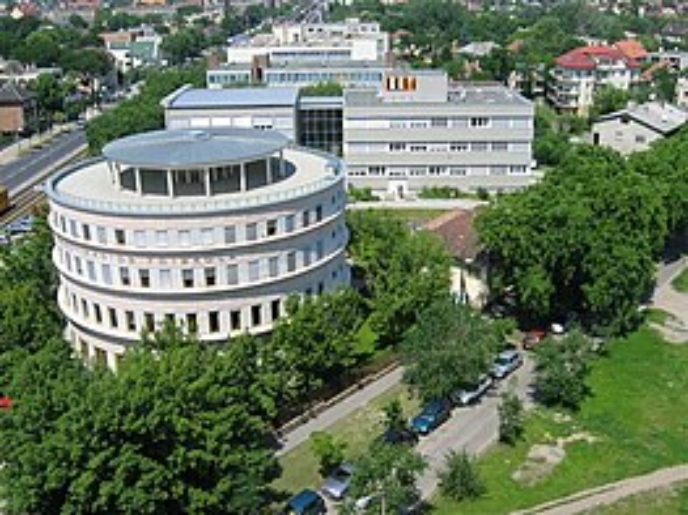Blog
Detourism: Exploring Off-the-Beaten-Path Travel Experiences

Many tourists are looking for other routes throughout the world since famous tourist spots are frequently congested and overcrowded. A movement known as “detourism,” which emphasizes finding undiscovered attractions and lesser-known places, has emerged as a result of this change. Embracing the less-traveled path and experiencing places in a more genuine, sustainable, and immersive manner are key components of detourism. We’ll explore the idea of detourism in this post, along with its advantages and practical applications for travelers.
What is Detourism?
Traveling off the beaten path and discovering areas that are less frequented by tourists is advocated by the detourism travel concept. This strategy is based on the notion of looking for singular experiences unaffected by mass tourism. It’s about learning about regional customs, interacting with locals, and visiting undiscovered natural areas that are frequently missed by well-traveled travel routes.
The Origin of Detourism
Combining the terms “detour” and “tourism,” “detourism” refers to the idea of traveling by a different path. Although the concept has been around for many years, it has been increasingly popular recently as more tourists search for meaningful and environmentally friendly ways to travel.
Why Choose Detourism?
1. Avoiding Crowds
The chance to escape congested tourist spots is one of the main draws for tourists to detourism. Popular towns and sites are frequently packed with tourists, making it challenging to enjoy the experience to the fullest. Selecting lesser-known locations can allow you to have a more intimate and tranquil trip experience.
2. Authentic Cultural Experiences
Detourism gives you the opportunity to fully engage with local cultures in a manner that mainstream tourism frequently does not. You may engage with people, discover their customs, and get a firsthand look at their way of life when you go to off-the-beaten-path locations.
3. Supporting Sustainable Travel
Overtourism is a problem in many well-known tourist locations, and it may have detrimental effects on the environment and nearby populations. By guiding travelers to less-traveled destinations, detourism encourages sustainable travel by assisting in the more equitable distribution of the economic advantages of tourism and lessening the stress on already overworked places.
4. Unique and Memorable Experiences
Discovering those undiscovered treasures that genuinely elevate your travel experience is the essence of detourism. These lesser-known locations, whether it’s a lonely beach, a little mountain hamlet, or a distant national park, can offer the most unforgettable experiences.
How to Embrace Detourism in Your Travels
1. Research Lesser-Known Destinations
To start embracing detourism, look at places that aren’t usually on the itinerary for travelers. This may be a little town in a well-known nation, an isolated island, or a seldom-visited national park. Seek to locations that provide distinctive experiences and cultural understanding.
2. Connect with Locals
Taking part in local affairs is a crucial part of detourism. Aim to pick up a few words in the local tongue, dine at family-run eateries, and book lodging from people in the area. Experiences that are more genuine and fulfilling may result from these exchanges.
3. Travel Slow
Slow travel, or staying longer in one location rather than attempting to see everything in a short amount of time, is encouraged by detourism. This enables you to thoroughly immerse yourself in the surroundings and culture of the place you are visiting, resulting in more meaningful travel experiences and stronger relationships.
4. Be Flexible with Your Plans
Being receptive to chance is one aspect of the detourism ethos. If a local suggests a secret location or you find a new location that piques your interest, don’t be hesitant to alter your plans. Traveling with flexibility may result in some of the most fulfilling experiences.
5. Respect the Environment and Local Culture
A fundamental tenet of detourism is sustainable tourism. Always be conscious of your influence on the community, observe local customs, and show respect for the environment. Don’t leave any trace and make a good impact on the locations you visit.
Top Detourism Destinations Around the World
1. Faroe Islands, Denmark
A secluded island in the North Atlantic Ocean, the Faroe Islands are well-known for its picturesque settlements, striking scenery, and extensive Viking heritage. For anyone looking for peace & quiet and stunning scenery, this location is ideal.
2. Gjirokastër, Albania
A UNESCO World Heritage site, Gjirokastër is a quaint village with well preserved Ottoman-era buildings. It provides an escape from the tourist throng and a window into Albania’s rich history and culture.
3. Svaneti, Georgia
Georgia’s Svaneti area, tucked away in the Caucasus Mountains, is known for its historic towers, breathtaking mountain vistas, and distinctive native culture. It’s the perfect place for both history buffs and adventure seekers.
4. Matera, Italy
Renowned for its prehistoric cave houses etched into the limestone, Matera is among the oldest continually inhabited settlements in the world. Even with its historical value, not many tourists are aware of it.
5. Raja Ampat, Indonesia
Indonesia’s isolated Raja Ampat archipelago is well-known for its amazing marine biodiversity and immaculate coral reefs. For those seeking a pristine tropical getaway, it’s a haven for diving enthusiasts and outdoor enthusiasts.
The Future of Detourism
As more tourists want for real, sustainable experiences, detourism is probably going to keep becoming more and more popular. In addition to providing tourists with exceptional and unforgettable experiences, this movement also contributes to environmental preservation and local community support. But as detourism grows in acceptance, it’s critical that tourists uphold the fundamentals of ethical and ecological travel.
Conclusion
Detourism is a concept that promotes a richer, more meaningful relationship with the places we travel to, not just a fad. You may avoid the traps of mass tourism and learn about a place’s actual spirit by opting to explore off-the-beaten-path locations. Embracing detourism may result in life-changing experiences and a deeper understanding of the richness of our planet, regardless of your level of expertise with travel.
FAQs
1. Is detourism only for experienced travelers?
No, detourism is for those who are willing to travel to less well-known places. Traveling is about being interested and adventurous, no matter how much or little you have traveled.
2. How can I find detourism destinations?
The key is research. Search for social media organizations, blogs, and forums dedicated to off-the-beaten-path travel. Once you get to your location, you may also ask the locals for advice.
3. What are the risks of detourism?
Detourism may provide unique experiences, but it may also present difficulties including poor infrastructure, a lack of interpreters, and less amenities for tourists. It’s critical to be adaptable and organized.
4. Can detourism be done on a budget?
Of course! Detourism frequently entails visiting less popular destinations, which can result in lower travel costs. Street food, public transit, and lodging nearby may all help keep expenses down.
5. How does detourism benefit local communities?
You may contribute to a more equitable distribution of the economic advantages of tourism by traveling to less-frequented locations. This can promote sustainable development, protect cultural assets, and help small enterprises in the area.
Blog
Cold Yogurt Drink Crossword: A Refreshing Classic You Need to Try

Cold yogurt drinks have been cherished for centuries in various cultures, offering a refreshing, creamy, and slightly tangy taste. Whether you’re solving a crossword clue or searching for the perfect summer beverage, this article dives deep into the history, variations, and benefits of cold yogurt drinks.
What is a Cold Yogurt Drink Crossword?
A cold yogurt drink crossword often refers to popular yogurt-based beverages such as lassi, ayran, doogh, or kefir. These drinks have been a staple in many cuisines, known for their probiotic benefits, cooling properties, and rich taste.
The History of Cold Yogurt Drinks
The origins of yogurt drinks date back thousands of years. Ancient civilizations in Central Asia, the Middle East, and the Mediterranean have long enjoyed fermented dairy products. Yogurt, which forms the base of these drinks, was discovered as early as 5000 BCE, when nomadic tribes found that fermented milk lasted longer and offered unique health benefits.
In Turkey and surrounding regions, ayran became a popular drink, while in India, sweet and savory lassi became a staple. Persia introduced doogh, and in Eastern Europe, kefir gained recognition. Over time, these drinks spread worldwide, each culture adding its unique twist.
Popular Cold Yogurt Drinks from Around the World
Ayran – The Turkish Delight
Ayran is a simple but refreshing Turkish yogurt drink made with yogurt, water, and salt. It is commonly served with grilled meats, spicy dishes, and traditional Turkish meals. The drink is known for its ability to cool the body and aid digestion.
Lassi – India’s Sweet and Savory Blend
Lassi is an Indian yogurt drink that comes in many variations. Sweet lassi is blended with sugar and fruit, while savory lassi contains salt, spices, and sometimes mint. Mango lassi, a popular variation, combines mango pulp with yogurt for a creamy, tropical flavor.
Doogh – Persia’s Traditional Refreshment
Doogh, a Persian yogurt-based drink, is similar to ayran but often includes herbs like mint and sometimes carbonated water for a fizzy effect. It pairs well with kebabs and rice dishes, making it a beloved drink in Iran and neighboring countries.
Kefir – The Probiotic Powerhouse
Kefir, originating from the Caucasus region, is a fermented yogurt drink with a slightly tangy and effervescent taste. Unlike other yogurt drinks, kefir contains a diverse range of probiotics that benefit gut health.
How to Make a Cold Yogurt Drink at Home
Making a cold yogurt drink at home is incredibly simple and customizable. Here’s a basic recipe for a classic savory yogurt drink similar to ayran or doogh:
Ingredients:
-
1 cup plain yogurt
-
1/2 cup cold water
-
1/2 teaspoon salt
-
Ice cubes (optional)
-
Fresh mint (optional)
Instructions:
-
In a blender, combine yogurt, water, and salt.
-
Blend until smooth and frothy.
-
Add ice cubes for extra chill and garnish with fresh mint.
-
Serve immediately and enjoy!
For a sweet variation, blend yogurt with honey, sugar, or fruits like mango, banana, or berries.
Health Benefits of Cold Yogurt Drinks
Rich in Probiotics
Yogurt drinks are packed with probiotics, which promote gut health and improve digestion. Regular consumption can help maintain a balanced microbiome.
Hydrating and Cooling
On hot summer days, a cold yogurt drink provides excellent hydration while keeping the body cool.
Supports Digestive Health
The probiotics and enzymes in yogurt aid digestion, reducing bloating and discomfort after meals.
Boosts Immunity
Fermented dairy products contain essential vitamins and minerals, strengthening the immune system.
Best Ways to Enjoy a Cold Yogurt Drink
With Meals
Cold yogurt drinks complement spicy foods, grilled meats, and rich dishes by balancing flavors and aiding digestion.
As a Refreshing Snack
Enjoy a cold yogurt drink as a mid-day snack, especially when blended with fruits for a nutritious boost.
Post-Workout Recovery
The protein and probiotics in yogurt drinks make them a great post-workout beverage for muscle recovery.
FAQs
what is the best type of yogurt for cold yogurt drinks?
Greek yogurt, plain yogurt, or probiotic-rich kefir work best, depending on the desired consistency and taste.
can cold yogurt drinks be made dairy-free?
Yes! Use coconut, almond, or cashew yogurt for a dairy-free alternative while maintaining a creamy texture.
how long do homemade yogurt drinks last?
Fresh yogurt drinks should be consumed within 24 hours for the best taste and probiotic benefits.
Are cold yogurt drinks good for weight loss?
Yes, they are low in calories, high in protein, and help keep you full, making them a great addition to a weight-loss diet.
what is the difference between lassi and ayran?
Lassi can be sweet or savory and is often flavored, while ayran is always salty and thinner in consistency.
can I add spices to my cold yogurt drink?
Absolutely! Cumin, black salt, cardamom, and mint are popular choices for enhancing flavor.
Conclusion
Cold yogurt drinks are a delicious and healthy way to stay refreshed and nourished. Whether you prefer a traditional Turkish ayran, a sweet mango lassi, or a probiotic-rich kefir, there’s a yogurt drink for everyone. Try making one at home and experience the benefits of this timeless beverage.
Blog
Abraham Quiros Villalba: A Life of Influence and Inspiration

Abraham Quiros Villalba is a name that resonates with influence, perseverance, and dedication. His contributions have touched various fields, leaving a lasting impact on those who have followed his work. Whether in academia, social activism, or leadership, his name stands as a testament to the power of vision and determination. His life’s journey is filled with achievements, challenges, and an unwavering commitment to making a difference.
This article explores the life of Abraham Quiros Villalba, from his early years to his professional accomplishments and legacy.
Early Life and Background
The story of Abraham Quiros Villalba begins with his formative years, which shaped his character and aspirations. Born into a family that valued education and integrity, he developed a passion for knowledge early on. His upbringing instilled in him the values of perseverance, hard work, and the importance of contributing to society.
You May Also Like: Adeena Mendel: A Leader in Innovation and Real Estate
As a young student, he displayed a keen intellect and a thirst for learning. His curiosity about the world and its complexities led him to pursue higher education in disciplines that would later define his career.
Academic Achievements and Education
Education played a crucial role in shaping the journey of Abraham Quiros Villalba. He pursued his studies at prestigious institutions, where he excelled academically. His academic interests spanned multiple fields, and he demonstrated a deep understanding of complex subjects.
His dedication to learning and research positioned him as a thought leader. He contributed to various academic projects, collaborated with experts in his field, and developed groundbreaking insights that influenced his industry.
The Enduring Influence of Abraham Quiros Villalba
Abraham Quiros Villalba’s journey is more than a story of success; it is an inspiration to those who seek to make a difference. His life demonstrates how education, leadership, and perseverance can shape a legacy that continues to impact people long after an individual’s active years.
His ability to adapt to change and embrace innovation has been a key factor in his success. Throughout his career, he remained committed to learning and evolving, ensuring that his work stayed relevant and influential. Whether through academic contributions, leadership roles, or mentorship, he has always been at the forefront of progress.
One of the defining aspects of his career is his commitment to ethical leadership. He firmly believes that true success is not just measured by personal achievements but by the positive impact one creates for others. His approach to leadership prioritizes integrity, inclusivity, and social responsibility. By fostering a culture of collaboration, he has encouraged those around him to strive for excellence while remaining mindful of their responsibilities to the broader community.
His influence extends beyond professional circles. He has been involved in initiatives that promote education, social development, and community-building efforts. His belief in the power of education has led him to support programs that provide opportunities for underprivileged individuals to access quality learning resources. He understands that knowledge is the key to empowerment and actively advocates for equal access to education for all.
Despite his many successes, Abraham Quiros Villalba remains grounded. His humility and willingness to share his knowledge make him a revered figure among peers and followers. He continues to mentor young professionals, helping them navigate their careers with wisdom and confidence.
His resilience in the face of adversity is another remarkable trait. Every challenge he has faced has only strengthened his determination to keep moving forward. He has turned obstacles into stepping stones, using each experience as a learning opportunity. This mindset has enabled him to maintain a positive outlook and remain a source of motivation for others.
The story of Abraham Quiros Villalba is one of inspiration, dedication, and lasting influence. His contributions will continue to shape minds and industries, leaving an enduring legacy that transcends generations. He is a testament to the idea that true success is not just about personal gain but about uplifting others and making the world a better place.
Professional Career and Contributions
The professional career of Abraham Quiros Villalba is marked by significant milestones. He ventured into various domains, applying his expertise to solve pressing challenges. His leadership and innovative thinking set him apart, making him a respected figure in his field.
Through his work, he has mentored aspiring professionals, shared valuable knowledge, and implemented impactful projects. His contributions have not only advanced his industry but also inspired those who seek to follow in his footsteps.
Leadership and Influence
Leadership is one of the defining traits of Abraham Quiros Villalba. His ability to lead with vision and integrity has earned him recognition and respect. He has held key positions in organizations, where he played a pivotal role in decision-making and strategic planning.
His leadership style is characterized by inclusivity, innovation, and a strong commitment to ethical principles. He believes in empowering others, fostering collaboration, and creating opportunities for growth.
Challenges and Triumphs
Like any great individual, Abraham Quiros Villalba faced challenges along his journey. His ability to overcome obstacles with resilience and determination speaks volumes about his character. Each challenge became an opportunity for growth, strengthening his resolve to make a difference.
Whether dealing with professional setbacks or personal struggles, his perseverance remained unwavering. His journey is a testament to the power of resilience and the importance of staying true to one’s purpose.
Legacy and Impact
The legacy of Abraham Quiros Villalba extends beyond his professional achievements. His contributions have left a lasting imprint on society, inspiring future generations to pursue excellence and make meaningful contributions.
His work continues to be a source of inspiration, and his influence remains relevant in various circles. Those who have had the privilege of learning from him or working alongside him acknowledge the profound impact he has had.
Conclusion
Abraham Quiros Villalba’s life is a remarkable journey of passion, perseverance, and purpose. His story serves as a beacon of inspiration for those who seek to create a positive impact in their respective fields.
His dedication to excellence, leadership, and contribution to society make him a role model worth celebrating. As his influence continues to grow, his legacy remains a guiding light for aspiring individuals who wish to follow in his footsteps.
Blog
Kate Middleton Is Reportedly Holding a Crucial Meeting

Kate Middleton, the Princess of Wales, is reportedly preparing for a significant meeting that could have far-reaching implications for the British monarchy. As the world watches closely, royal insiders speculate that this meeting may address key concerns related to her role, health, and future responsibilities within the royal family.
The news has fueled intense discussions among royal watchers and experts. As any meeting involving the future Queen Consort of the United Kingdom carries great significance. Amid growing curiosity, questions arise about the purpose of this meeting and its potential impact on the monarchy.
Kate Middleton’s Role in the Royal Family
Since marrying Prince William in 2011, Kate Middleton has evolved into one of the most respected and admired members of the British royal family. Her grace, dedication to charitable causes, and ability to balance modernity with tradition have cemented her place as a key figure in the monarchy.
You May Also Like: MyGreenBucks Kenneth Jones: A Path to Financial Freedom
As the Princess of Wales, she holds an essential role in supporting the royal family’s public duties. Whether championing early childhood development, mental health awareness, or promoting British culture abroad, Kate’s influence is undeniable. However, recent reports suggest that this crucial meeting could signal a turning point in her responsibilities.
The Significance of This Crucial Meeting
Whenever a high-profile royal event is rumored, speculation quickly follows, and Kate Middleton’s reported meeting is no exception. Royal insiders suggest that this crucial discussion could touch on several pressing topics that will shape her future within the monarchy. One of the most significant points of discussion is her future responsibilities. As King Charles III continues to modernize and streamline the royal family. Kate’s role may be redefined to reflect the evolving demands of the institution. With Prince William steadily preparing for his eventual reign. Kate’s responsibilities as the future Queen Consort could expand, requiring her to take on more leadership roles within royal charities, diplomatic engagements, and state functions. The meeting could outline new expectations, giving her greater influence in shaping the monarchy’s direction.
Another major point of concern is her health and well-being. In recent months, public concern has grown due to her reduced appearances at key royal events. While Kensington Palace has maintained privacy regarding her health, the absence of clear information has fueled speculation. This meeting could serve as an opportunity for the royal family to discuss any medical considerations that might affect her ability to fulfill her duties. If her health requires adjustments to her schedule, it may lead to a temporary reduction in engagements or a strategic restructuring of her workload to ensure a balance between her well-being and royal commitments.
The discussion might also revolve around public appearances and commitments. Kate Middleton has long been one of the most visible and admired members of the royal family, but in recent months. She has taken a step back from frequent engagements. The reason behind this remains unclear, leaving many royal watchers wondering whether she will resume her full schedule or adopt a more selective approach. If this meeting is meant to finalize plans for her public return. It could mean an official announcement detailing her upcoming engagements, international visits, or new initiatives under her patronage. Alternatively, it may indicate a shift toward a more private, family-focused approach. Where she balances her duties with her role as a mother to Prince George, Princess Charlotte, and Prince Louis.
As speculation swirls, one thing is certain—Kate Middleton’s role within the monarchy is evolving. The outcome of this meeting could shape the next chapter of her journey as the Princess of Wales.
Growing Public Interest in Kate’s Meeting

Royal fans around the world have expressed keen interest in the outcome of this reported meeting. Many see Kate Middleton as the future of the monarchy, and any decisions regarding her role will have lasting implications.
Social media platforms have been buzzing with theories, ranging from speculation about a major royal announcement to discussions about possible changes in Kate’s public engagements. Some experts believe that this meeting could set the tone for the next phase of her journey as the Princess of Wales.
Royal Experts Weigh In
Several royal commentators have shared their insights regarding the potential agenda of Kate’s meeting. According to longtime royal correspondent Richard Fitzwilliams. This meeting could be about streamlining the royal family’s duties, particularly in light of recent changes.
In an interview with a leading news outlet, another expert suggested that the discussion might center on preparing Kate for an even greater leadership role as Prince William moves closer to the throne. The expert emphasized that Kate’s growing influence within the royal family means that any strategic meeting involving her is of major significance.
Kate Middleton’s Recent Public Appearances
While Kate has always been a prominent public figure, her recent absence from major royal events has fueled speculation. Over the past few months, she has maintained a relatively low profile, sparking curiosity about the reasons behind her reduced engagements.
Her last major public appearance was during the annual Remembrance Day service. Where she was seen alongside King Charles and other senior royals. Despite speculation, Kensington Palace has remained relatively quiet, neither confirming nor denying reports regarding the nature of Kate’s upcoming meeting.
What This Meeting Could Mean for the Monarchy
Given Kate Middleton’s popularity and influence, any changes to her role could have a profound impact on the British monarchy. With the modern royal family seeking to maintain relevance in an evolving world, strategic planning is essential.
>If the meeting is indeed about her responsibilities. It may indicate a shift in how the monarchy functions in the coming years. Whether this means increased duties, a temporary retreat from public life, or a new approach to her work. The outcome will be closely monitored by the public and media alike.
The Public’s Reaction to Kate’s Meeting
Public sentiment toward Kate Middleton remains overwhelmingly positive. Many admire her for her poise, intelligence, and ability to balance royal responsibilities with family life.
As news of the reported meeting spreads, supporters have taken to social media to express their well wishes. Some have speculated that the meeting may be related to an important charitable initiative, while others believe it could be tied to a major family decision within the royal household.
The Future of the Princess of Wales
>Regardless of the outcome of this crucial meeting, one thing remains clear—Kate Middleton’s influence within the royal family is stronger than ever. As a future Queen Consort, her role in shaping the monarchy is undeniable.
=””>=”6052″>>If reports are accurate, this meeting could serve as a pivotal moment in her journey, determining the next steps in her royal duties. Whether it signals a shift in responsibilities, a renewed public presence. An entirely new approach to her role, the world will be watching closely.
Conclusion
Kate Middleton’s reported crucial meeting has ignited curiosity and speculation among royal watchers worldwide. As one of the most influential figures in the British royal family, any developments concerning her role carry significant implications. Whether the meeting signals a strategic shift, a health-related update, or a renewed commitment to public duties. It is clear that the Princess of Wales remains a central figure in shaping the monarchy’s future.
art=”7887″>-end=”8050″>>>With the public eagerly awaiting further information, one thing is certain—Kate Middleton’s journey as a royal continues to captivate audiences around the world.
-

 BEAUTY9 months ago
BEAUTY9 months agoLaGlobalBae: Revolutionizing Fashion and Inclusivity Globally
-

 FASHION11 months ago
FASHION11 months agoThe Rise of Rick Owens in Modern Fashion
-

 SOCIAL3 months ago
SOCIAL3 months agoSwatapp.me المانجا: The Ultimate Manga Reading Platform
-

 INFORMACTION7 months ago
INFORMACTION7 months agoHeller Farkas College of Economics and Tourism: A Legacy
-

 Blog10 months ago
Blog10 months agoTechdae.frl’s Gadget Reviews and In-Depth Insights
-

 Blog10 months ago
Blog10 months agoAdeena Mendel: A Leader in Innovation and Real Estate
-

 SPORTS7 months ago
SPORTS7 months agoIndia National Cricket Team vs England Cricket Team: A Riveting Timeline
-

 FASHION10 months ago
FASHION10 months agoA Comprehensive Guide to the Geox Baby Fighter 2 Manual
